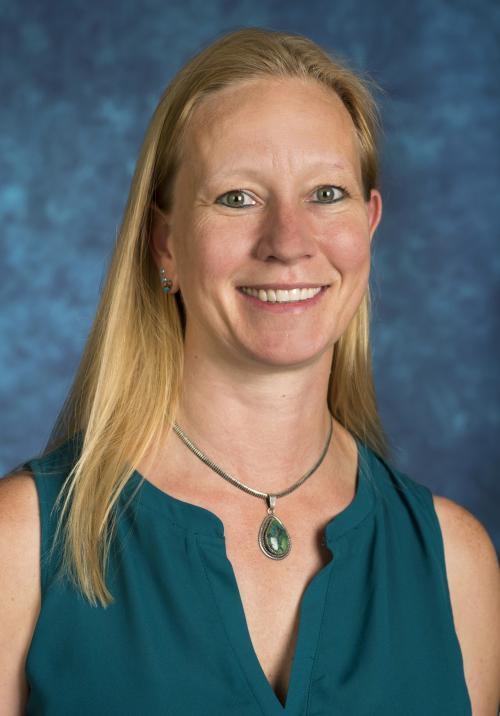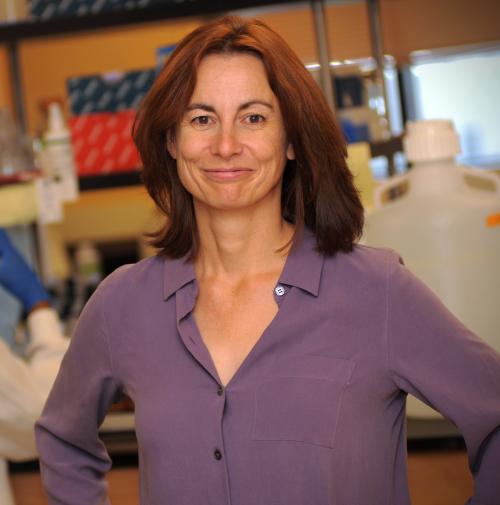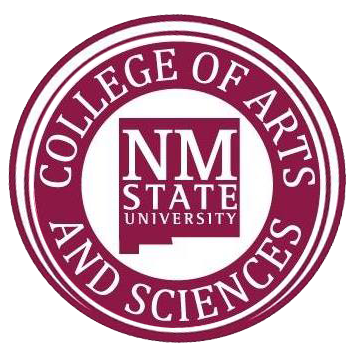https://newscenter.nmsu.edu/Articles/view/14419/nmsu-professors-join-global-network-researching-emerging-infectious-diseases?fbclid=IwAR3xXEhXHRui9s4-0q-2ER6D4-2B6R-ClkPmTOeh56buiiPEWR9sCRJBuOY

New Mexico State University geography associate professor Michaela Buenemann is a co-investigator in CREATE-NEO.

New Mexico State University Regents Professor of Biology Kathryn Hanley is a co-principal investigator of one of the 11 new Centers for Research in Emerging Infectious Diseases (CREID). (NMSU Photo by Darren Phillips)
New Mexico State University Regents Professor of biology Kathryn Hanley, who has conducted extensive research on mosquito-borne Zika, chikungunya and dengue viruses, is a co-principal investigator for one of these centers along with her long-term collaborator, Nikos Vasilakis, professor and Vice Chair for Research at the University of Texas Medical Branch. Michaela Buenemann, associate professor in NMSU’s geography department, and Ben Althouse, affiliate professor in NMSU’s biology department, will participate in this research as co-investigators. Buenemann previously worked with Hanley on related projects in New Mexico, Senegal, Malaysian Borneo, and Brazil.
The center, called Coordinating Research on Emerging Arboviral Threats Encompassing the Neotropics (CREATE-NEO), will focus on chikungunya, dengue, Mayaro, yellow fever and Zika viruses. The project will combine arbovirus surveillance across Central and South America with predictive modeling efforts to better anticipate and counter arbovirus emergence to forewarn local, regional, and global public health agencies of those with a particularly high risk of spillover, emergence into transmission among humans, and/or international spread.
“I am incredibly excited to grow our research program in the neotropics and to strengthen our collaborations within NMSU, among our partner institutions in the U.S., including UTMB, MIT, and the Cary Institute of Ecosystem Studies, and among our many collaborators in Brazil and Panama,” Hanley said.
Each center in the larger CREID network will involve collaborations with peer institutions in the United States and 28 other countries. Research projects will include surveillance studies to identify previously unknown causes of illnesses that cause fever in humans; find the animal sources of viral or other disease-causing pathogens; and determine what genetic or other changes make these pathogens capable of infecting humans.
CREID investigators also will develop reagents and diagnostic assays to improve detection of emerging pathogens and study human immune responses to new or emerging infectious agents.
Overall, the breadth of research projects in the CREID network will allow for study of disease spillover in multiple phases of the process: where pathogens first emerge from an animal host; at the borders between wild and more populated areas, where human-to-human transmission occurs; and, finally, in urban areas, where epidemic spread can occur.
“The COVID-19 pandemic has revealed the critical importance of catching new pathogens before they have achieved full-blown emergence into the human population,” Hanley said. “It is equally important to discover how anthropogenic changes, such as deforestation, may accelerate pathogen emergence. CREATE-NEO will let us pursue both of those goals.”
“My role as a geographer on the CREATE-NEO team is to direct and oversee all geospatial analyses,” said Buenemann. “This includes activities such as selecting field sampling sites; mapping land cover using satellite imagery, developing and maintaining a geodatabase of all spatial data produced during the project; assessing relationships between habitat characteristics and vector and virus distribution, abundance, and diversity; and generating risk maps for sylvatic arbovirus emergence, transmission, and spillback.”
Hanley, Buenemann and Althouse will be focused on Central and South America, where they will study the known pathogens described above, but will also be poised to study any newly emerging pathogen, dubbed “pathogen X.”
An award to RTI International in Research Triangle Park, North Carolina, in collaboration with Duke University, Durham, North Carolina, will fund a CREID Coordinating Center. This center will support network-wide activities such as data management, outbreak research response and quality control for biospecimens, assays and reagents. It will also administer a pilot research program for early career investigators.
For more information about the CREID network, visit: https://creid-network.org/
